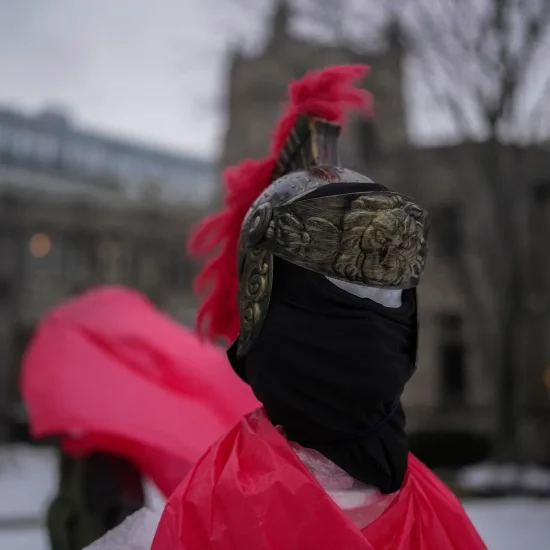My favorite Christmas movie is “A Christmas Story,” which tells the story of Ralphie Parker, a nine-year-old boy and his desire to receive an official Red Ryder carbine action, two-hundred shot range model air rifle with a compass in the stock and a sundial for Christmas.
The problem that Ralphie faces is all of the adults in his life are against him receiving the gun as a Christmas present because, as they say, “he’ll shoot his eye out.” Even his dad agrees. But, to everyone’s surprise, on Christmas morning Ralphie’s father gives him his coveted dream gift. And as fate would have it, when Ralphie tries to shoot the gun for the first time, he almost shoots his eye out.
The themes that are found in the movie “A Christmas Story” (wanting something so bad that you could taste it to only be told by others that you’ll never have that thing that you desperately want, or achieve that goal that you are moving towards, or receive something that you really need and then actually waking up one day to find out that what you have been so desperately seeking after is finally in your possession) are not new. They are also found in the Bible.

Terrell Carter
In Isaiah 11, God, through the prophet, confirms this very thing. God tells them that someone will come and save them from their enemies, restoring them and their land to their proper glory. This salvation for God’s people came from a most unlikely source, a king named Cyrus. One of the interesting things about Cyrus was that he was not a full-fledged believer in the God of Israel and Judah, but he respected their God and what God meant to the people.
Cyrus would be the person who would return God’s people to their promised land and supply them with money and material to rebuild their homes and religious landmarks. Eventually, Isaiah goes so far as to declare Cyrus as Messiah, the anointed one of God and savior of God’s people. God fulfilled the people’s desire for freedom through an unlikely source.
Cyrus was not the last person to be given the title of Messiah. It was later bestowed upon Jesus of Nazareth, whose birthday we are preparing to celebrate. Although he wasn’t born into a royal family and his birth wasn’t followed by the typical pomp and circumstance that follows a royal birth, he was the legitimate King of all kings on day one.
These two men, who came from two different spectrums in life, share the common distinction of being used by God to provide freedom to God’s children. One provided physical and social freedom. The other provided spiritual and eternal freedom. At first glance, neither necessarily fit the anticipated expectations of a savior. One was a conquering dictator. The other was a babe in a manger. But God used both of them in mighty and wondrous ways.
As we prepare our hearts and minds to experience the multiple joys and emotions of this Christmas season, let us be reminded that God may provide some of the things that we want and need through some of the most unlikely vessels. It is up to us to see God’s hand moving through those unlikely vessels and to appreciate the change that they bring to our lives.
Terrell Carter is assistant professor and director of contextualized learning at Central Seminary in Shawnee, Kan., and pastor of Webster Groves Baptist Church Webster Groves, Mo.






